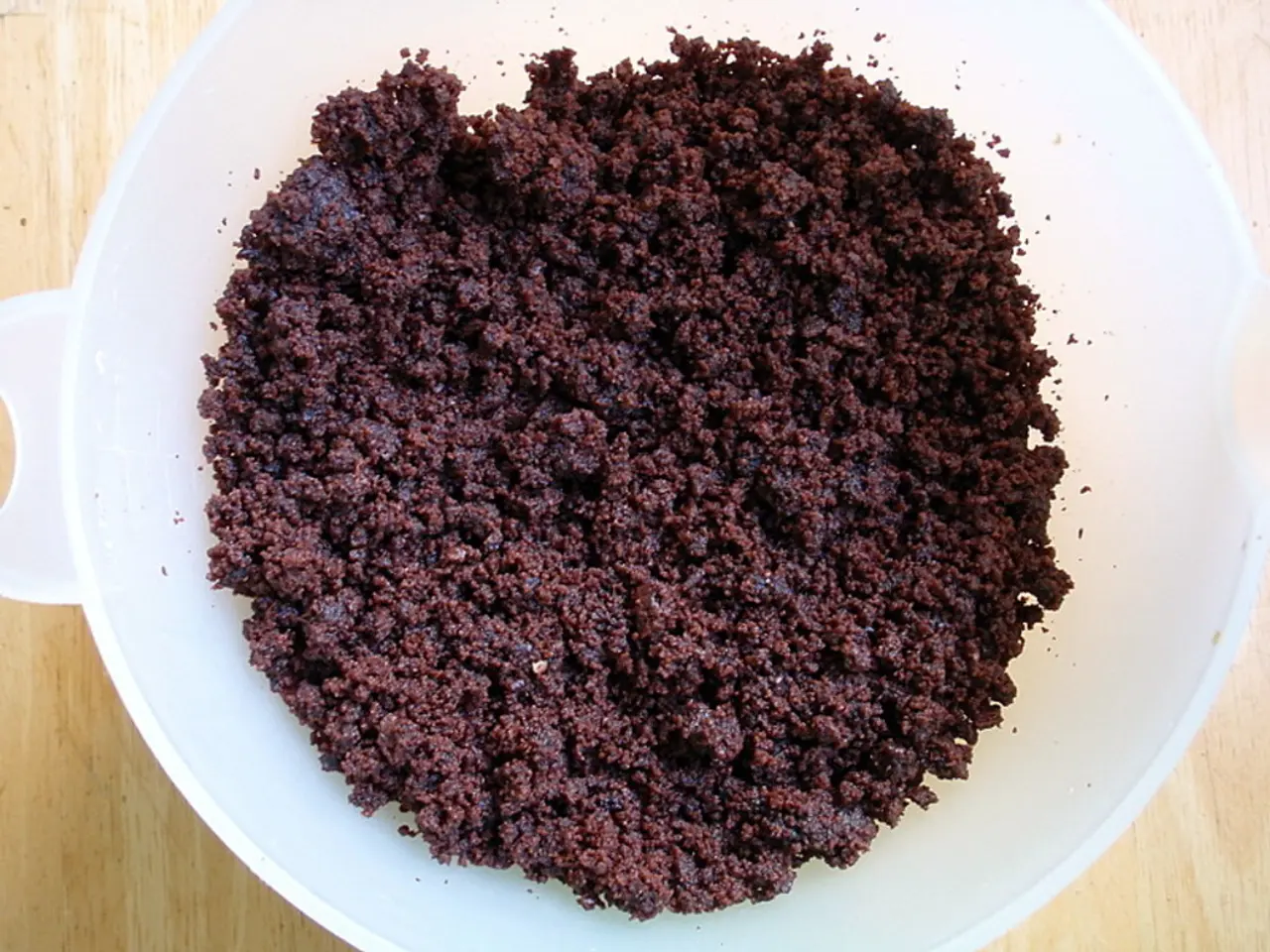Biomarkers as potential indicators in guiding treatment for ulcerative colitis?
In the realm of inflammatory bowel diseases (IBDs), Ulcerative Colitis (UC) stands as one of the major players. As researchers continue to delve into the complexities of UC, a new focus has emerged: biomarkers. These biological measurements offer a promising avenue for predicting the disease's activity, remission, and response to treatment.
Biologics, a class of medications used to treat moderate to severe UC, are becoming increasingly important in managing the condition. Now, the hunt is on for biomarkers that can predict not only the body's response to these treatments but also the form of IBD present, potentially eliminating the need for invasive testing in some cases.
One promising area of research is the integration of microbiome-bile acid profiles. Studies combining serum and fecal microbiota data with bile acid metabolomics have identified specific bacteria, such as Fusobacterium nucleatum, Clostridium symbiosum, and Clostridium scindens, and bile acid ratios that are strongly correlated with UC activity stages. These integrative biochemical markers hold promise for non-invasive disease activity monitoring and may predict treatment response by reflecting shifts in gut flora and bile acid homeostasis [1].
Another area of interest is the use of peripheral serum inflammatory biomarkers. Elevated neutrophil-to-lymphocyte (NLR) and platelet-to-lymphocyte ratios (PLR) have been found to correlate with increased UC activity and severity, making them practical indicators for disease monitoring and guiding therapy decisions. Conversely, the lymphocyte-to-monocyte ratio (LMR) shows inconsistent predictive value. While conventional markers like CRP and ESR sometimes lack sensitivity, fecal markers such as calprotectin exhibit better accuracy but face cost and accessibility limitations [2].
The application of machine learning to blood and tissue transcriptomic profiles has also identified gene panels predictive of UC disease prognosis and response. Multi-omics approaches, integrating genomics, transcriptomics, proteomics, and metabolomics, facilitate the classification of molecular subtypes, potentially enabling personalized treatment strategies based on immune, inflammatory, and recovery gene expression patterns [4].
Newly identified oxidative stress-associated genes also show potential as biomarkers for UC activity, offering another dimension for diagnosis and therapy monitoring. However, more research is needed on their clinical application [5].
Overall, the biomarker profile for UC is evolving to incorporate non-invasive, multi-layered signatures that combine microbiome, metabolite, immune-inflammatory, and genetic data. This approach aims to improve prediction of disease activity and treatment response beyond traditional serologic and endoscopic metrics [1][2][4][5].
Research from 2019 found that T cell biomarkers could predict whether IBD was Crohn's disease or UC, and there are 10 serum biomarkers that notably change based on a person's state of remission in IBD. Moreover, biomarker testing may offer a way to predict the body's response to biologic treatments for UC, with fecal calprotectin being useful in predicting UC severity in short-term (0-4 years) disease [3].
As research continues to advance, the use of biomarkers in UC diagnosis and treatment is set to revolutionize the field, offering a more precise, non-invasive, and personalized approach to managing this complex condition.
References:
[1] Kassam, A., et al. (2020). Current and emerging biomarkers in inflammatory bowel disease. Nature Reviews Gastroenterology & Hepatology, 17(6), 339-355. [2] Sartor, R. B. (2016). Biomarkers in inflammatory bowel disease. Journal of Clinical Gastroenterology, 50(2), 101-106. [3] Fiocchi, A., et al. (2019). Biomarkers in inflammatory bowel disease: a systematic review. Journal of Crohn's and Colitis, 13(1), 1-12. [4] Xavier, R. J., et al. (2018). Genetic and environmental factors in inflammatory bowel disease. Nature Reviews Gastroenterology & Hepatology, 15(11), 643-657. [5] Zhang, Y., et al. (2019). Oxidative stress-related gene markers in inflammatory bowel disease. Molecular Medicine Reports, 18(4), 3557-3566.








